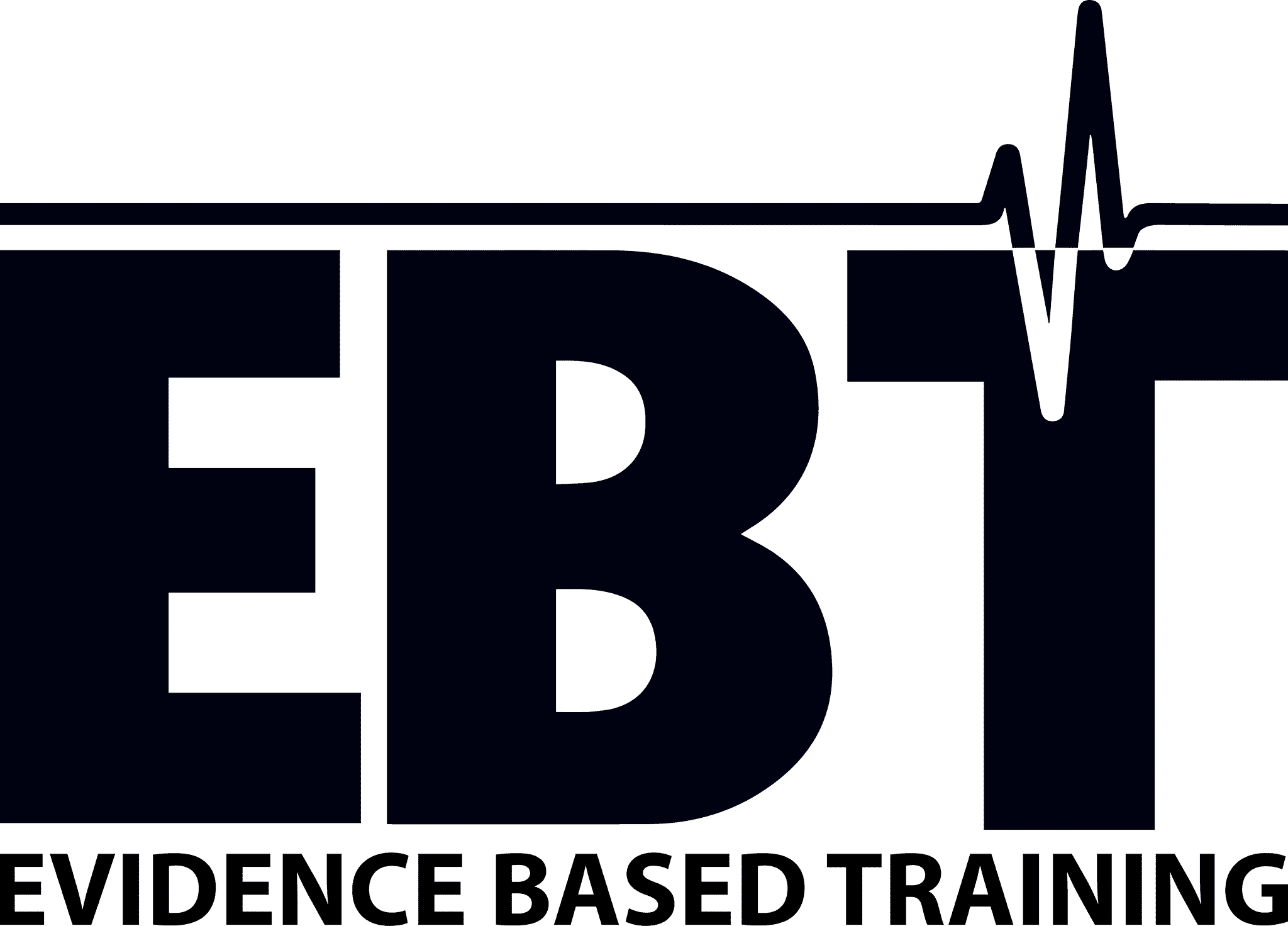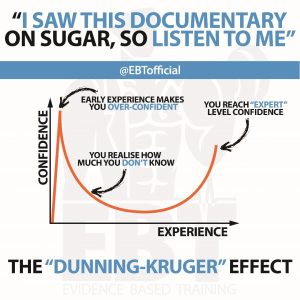Ever made this assumption?

Articles and documentaries often say that a certain foods are “linked” to certain diseases. This is often assumed to mean that the food CAUSES the disease, but what it actually means is that the people who eat the food have more disease than the people who don’t eat the food, or that people who have the disease eat more of the food in question. In scientific terms this “link” is called a correlation or association.
Just because two things occur at the same time does NOT mean that they cause each other.
Take the t-shirt example above, just because taller people have larger t-shirts doesn’t mean that the large t-shirts make them tall. The true reason for being taller is genetics, nutrition and a range of other factors that also happen to be found among people with larger than t-shirts. These “other” true reasons for tallness are called confounding factors in science.
Likewise, diet soda doesn’t CAUSE obesity or diabetes, but people who drink diet soda as a group live a less healthy lifestyle than people who don’t drink diet soda (and probably don’t eat fast food either).
Also, it seems that the link between diabetes and diet soda is explained by the fact that people who get diabetes starting to choose diet soda to keep their blood sugar levels low.
Link/associations/correlations are found using observational studies (epidemiology). To figure out what CAUSES what you need to look at experimental studies (RCTs).
______________
EBT (Evidence Based Training) M.Ds with a passion for public health making fitness & nutrition science simple. Build muscle, burn fat, perform better. Like, comment & follow us on IG & Facebook, and check out ebtofficial.com for our full blog with tons of free content. The information above is not medical advice.
Sources:
1. Association between sugar-sweetened and artificially sweetened soft drinks and type 2 diabetes: systematic review and dose-response meta-analysis of prospective studies. doi: 10.1017/S0007114514001329
2. Consumption of sugar sweetened beverages, artificially sweetened beverages, and fruit juice and incidence of type 2 diabetes. doi: 10.1136/bmj.h3576









